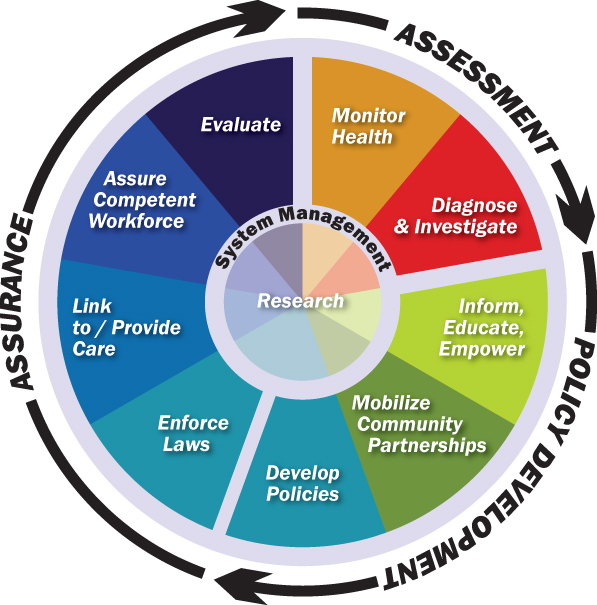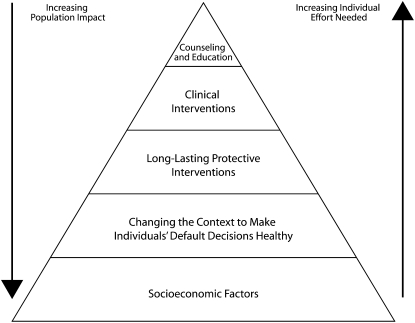

The 10 Essential Public Health Services serves as a framework of the ideal strategies towards which all communities should strive to best address the public's health. The legal component of Public Health becomes increasingly important. Note that the 5th and 6th essential public health services are respectively "create, champion, and implement policies, plans, and laws that impact health," and "utilize legal and regulatory actions designed to improve and protect the public’s health."
The Health Impact Pyramid

From CDC's Director Dr. Thomas Friedan's article, "A Framework for Public Health Action: The Health Impact Pyramid"
View "Levels of Intervention" in Part 1, Chapter 4 of link above